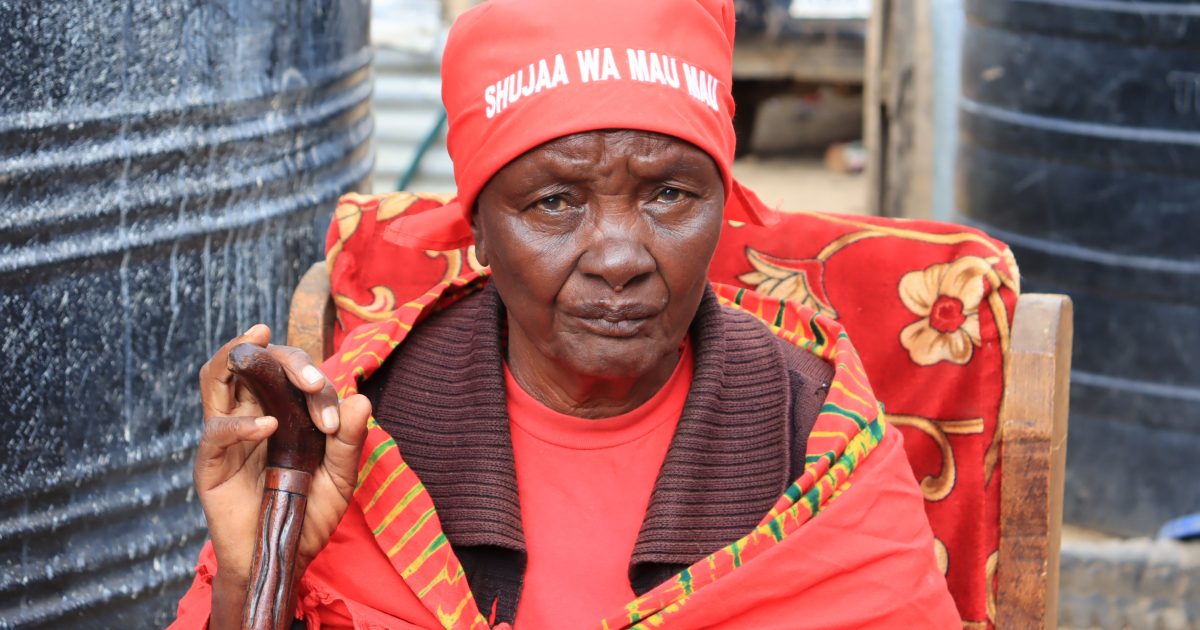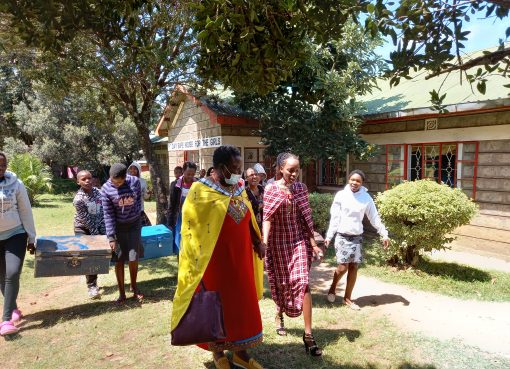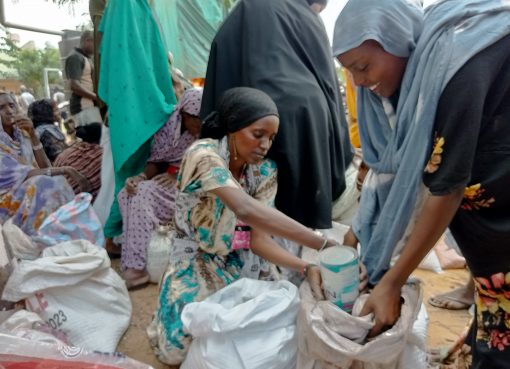
As Kenya marks her 11th Mashujaa celebrations since the inauguration of the new constitution in the year 2010, the story of Mama Miriam Kisio cannot go untold as she is one of the Maasai women who fought for independence.
Mama Kisio, was married to late major General Kurito Ole Kisio in 1950, where together with the husband participated in the Mau Mau secret activities within Olorropil area in the current Narok North Sub County.
Major Ole Kisio was a renowned veteran war hero as he participated in the second world war from 1939 to 1945 and continued to serve in the British Army until 1949 when he opted to quit the job to join Mau Mau when it was then a secret organization.
When Kenya News Agency (KNA) visited Mama Kisio, now almost 90 years old, she vividly recalls her struggle for her country to gain independence despite her age.
She recalls when she got married to General Kisio in the 1950’s, the husband who was actively involved in Mau Mau activities sensed that she could be in trouble from colonialists and took her to hiding in Morijo area in Narok South Sub County.
“When the colonial government failed to arrest my husband, they got a tip that I had been hidden in Morijo area and immediately came to arrest me,” she recalls.
By the time of arrest, Mama Kisio was five months pregnant with their second born son and she remembers being taken by two askaris, one black and the other white to Narok Prison, then known as ‘jela kubwa’.
In the prison, she recalls meeting other people who had been arrested from Nakuru County, however, after a few days, all other women were released to go home and she was left alone.
She says when she neared delivery, she was taken to another cell in Narok town, then known as ‘jela ndogo’ where she stayed until she was taken to deliver in Narok hospital.
“When I was taken to ‘Jela ndogo’, I was locked inside a room and not allowed to work like other prisoners until I delivered my second born son Tuta Ole Kision in 1954,” she says.
After delivery, her people were called to see the baby and bring her food though the husband had not even visited her to see their first born son.
While in prison in 1954, she received sad news from members of the public that her husband had been killed by the coronial administration.
She remembers being taken to Entara detention camp in Narok and after a while transferred to Olokruto detention camp where she was released in 1956.
After jail, mama Kisio went back to her husband’s home in Olopita where she lived until in 1990’s when she was evicted when the land was being subdivided.
“The family of my husband, late Kisio, resolved that he would not be given a share of the land. I was denied the right to get the family share of the land and consequently chased away,” she laments.
This made her live in Majengo estate in Narok town with her first born son where she lives todate.
In1995, she learnt of Mau Mau veteran Association. That’s when the leaders under the umbrella of National Veterans Association led by Gitu Kahengeri came to look for her in Narok and enrolled her in to the association.
She says even after joining the Mau Mau group, nothing about her life changed as she continues lavishing in poverty as she has never got any financial support from anyone.
“I dearly thank President Uhuru Kenyatta our beloved president for the cash transfer programme where I am a beneficiary. However, I would like the government to consider the plight of all those Mau Mau war veterans who suffered and dedicated their lives for our beloved country,” the old woman says.
The now elderly lady says her greatest issue is extreme poverty as she lives in a semi-permanent house in her sons plot at Majengo estate in Narok town.
Narok County Mau Mau Association Secretary David Kamau laments that the family of Mama Kisio still lives in poverty despite the hardship they went through to gain independence.
He says Mama Kisio has been narrating to him how she suffered under the colonial government but shocking enough she has never enjoyed any fruits of independence.
“It is sad that we the Mau Mau people have not really enjoyed the fruits of our independence. We plead to the government to consider rewarding those who fought for independence by giving them a decent livelihood,” reiterates Kamau.
The Association’s Chairman Mzee Wilson Tamooh says the freedom fighters suffered unspeakable acts of brutality from the colonial government hence deserve to be recognized.
“In the struggle for independence the fighters suffered ‘unspeakable acts of brutality’ including beatings and severe sexual assaults among others,” adds Mzee Tamooh.
To keep the history of the freedom fighters alive, the officials said they have registered their descendants and other interested Kenyans to join the association in respect to the country’s journey to independence.
By Ann Salaton





